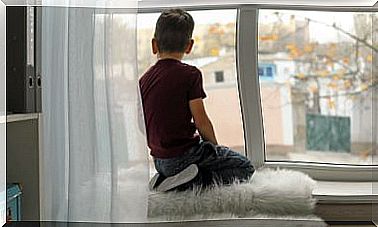If You Want Your Children To Listen To You, Learn To Manage Your Anger

Educating by example is the first option that exists to raise a family, since what is seen daily at home is what tends to be replicated for the rest of life. For this reason, if you want your children to listen to you, it is necessary to learn to manage your anger and take advantage of the opportunity to discipline in a positive way.
Although it is said simple, it is not. However, it is about making the effort to apply emotional intelligence in all daily situations of life , a tool that will make you take the best attitudes, in certain situations that can lead you to lose perspective in a few minutes.
And it is that, according to Salovey and Mayer, emotional intelligence is “the ability to monitor the feelings and emotions of oneself and of others, to discriminate between them and to use this information for the orientation of action and one’s own thinking” .
So before getting upset for any reason, it is advisable to analyze the situation and react in a proportionate way, because surely you will never want any behavior of yours, that as an adult you are aware that you can modify, affect the emotional development of your children.

Why do we get angry?
According to specialists, anger is a basic and universal feeling that all human beings and animals are capable of feeling and it is also considered to be of great value for survival. However, the key is not to become a very irritable parent.
This does not mean at any time that you should hide those emotions considered negative, because it is normal, since all types of feelings are part of human beings. In any case, it is about you being able to put your dislikes in perspective, since uncontrolled anger negatively affects your entire environment.
For example, the moment your child broke a glass by playing with the ball inside the house. Even if you find yourself very upset because it was your mother’s gift, breathe and explain in a calm and moderate tone of voice why she cannot repeat that behavior in the future. He will surely listen to you and the situation will just pass without trauma.
On the other hand, if you do the opposite and when the glass is broken you are filled with anger and start screaming, surely your child will get nervous, burst into tears and will not have understood very well that he cannot repeat that behavior. You will be too overwhelmed to do so.

Give anger 5 minutes and make them listen to you
Anger management is vitally important in all stages of the life of your children. As they grow older, it can be a complicated situation in more complex phases such as puberty or adolescence . Without a doubt, you should make the effort to manage anger and encourage communication from the first years of life.
Keep in mind that although the innocence of childhood can cover up some of these mistakes that are usually made as parents, little by little children are more aware of their entire environment and these behaviors begin to create precedents, completely marking their integration and development in everyday life.
In this sense, it is convenient to start the practice of anger management and be able to detect when you feel that the upset is getting out of control. This will then be the time when you should step aside and take 5 minutes for the annoyance level to decrease and you can assume a more positive attitude when interacting with your child.
Instead of keeping your distance and being authoritarian with your child, encourage communication and discipline wisely:
- Get down and speak to him in an appropriate tone of voice.
- Looking into his eyes, ask him to pay attention to you.
- Once you get their full attention, explain the situation and ask if they understand.
- Repeat the process whenever you need it until it becomes a habit, because in this way you will avoid filling your home with tension and distancing yourself from your child.
In this way, you will make the affective relationship much more positive and the parent-child treatment is based on mutual respect and the teaching of values. Apply these tools on a daily basis and they will undoubtedly help you carry your day to day in a more relaxed way and constantly strengthen the bonds of affection with your children.









